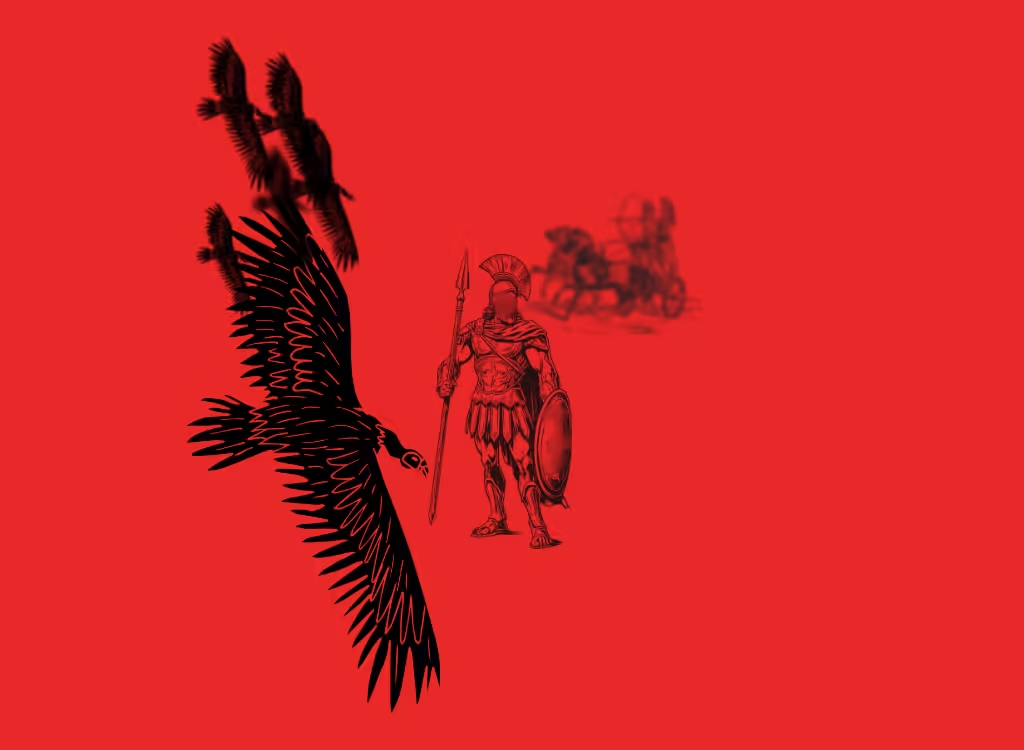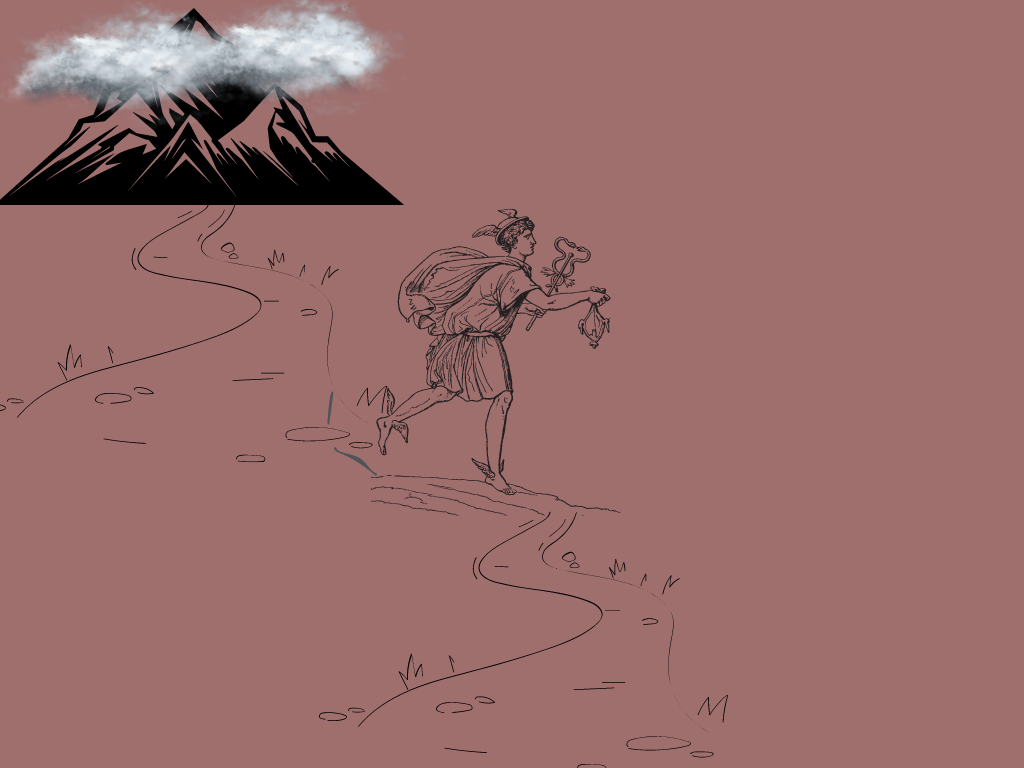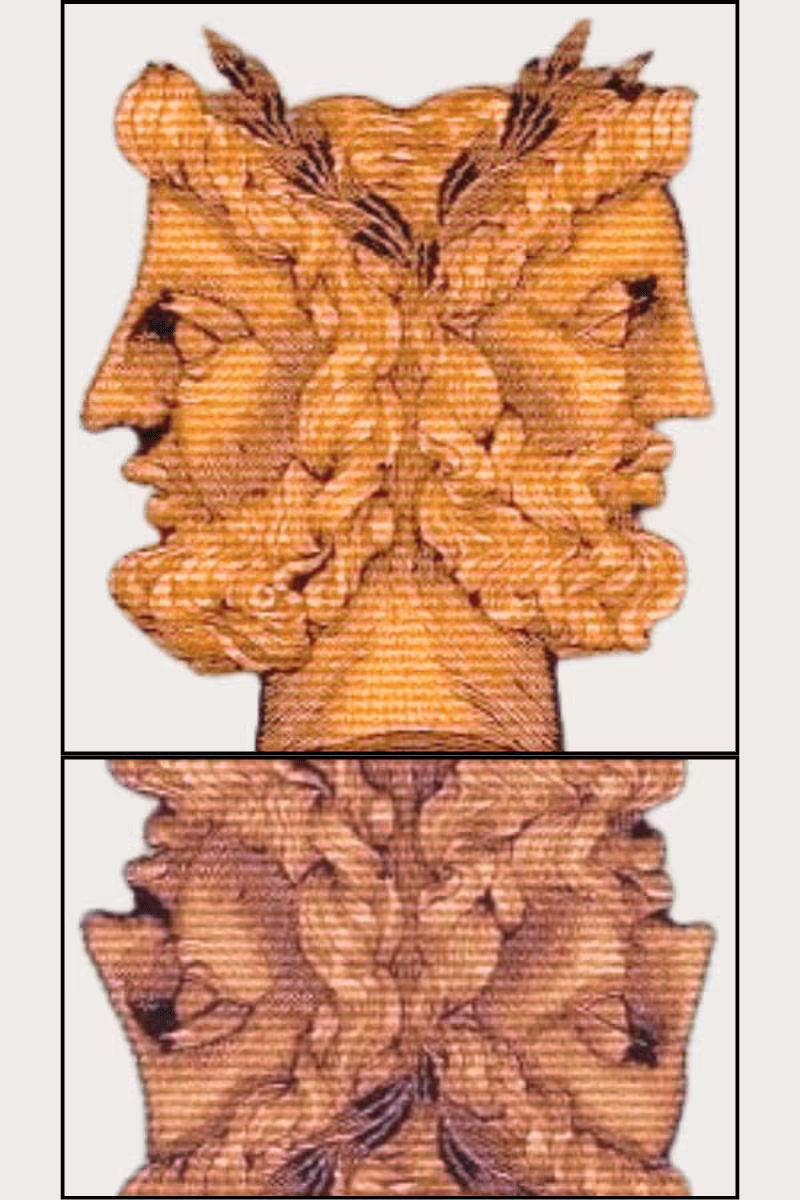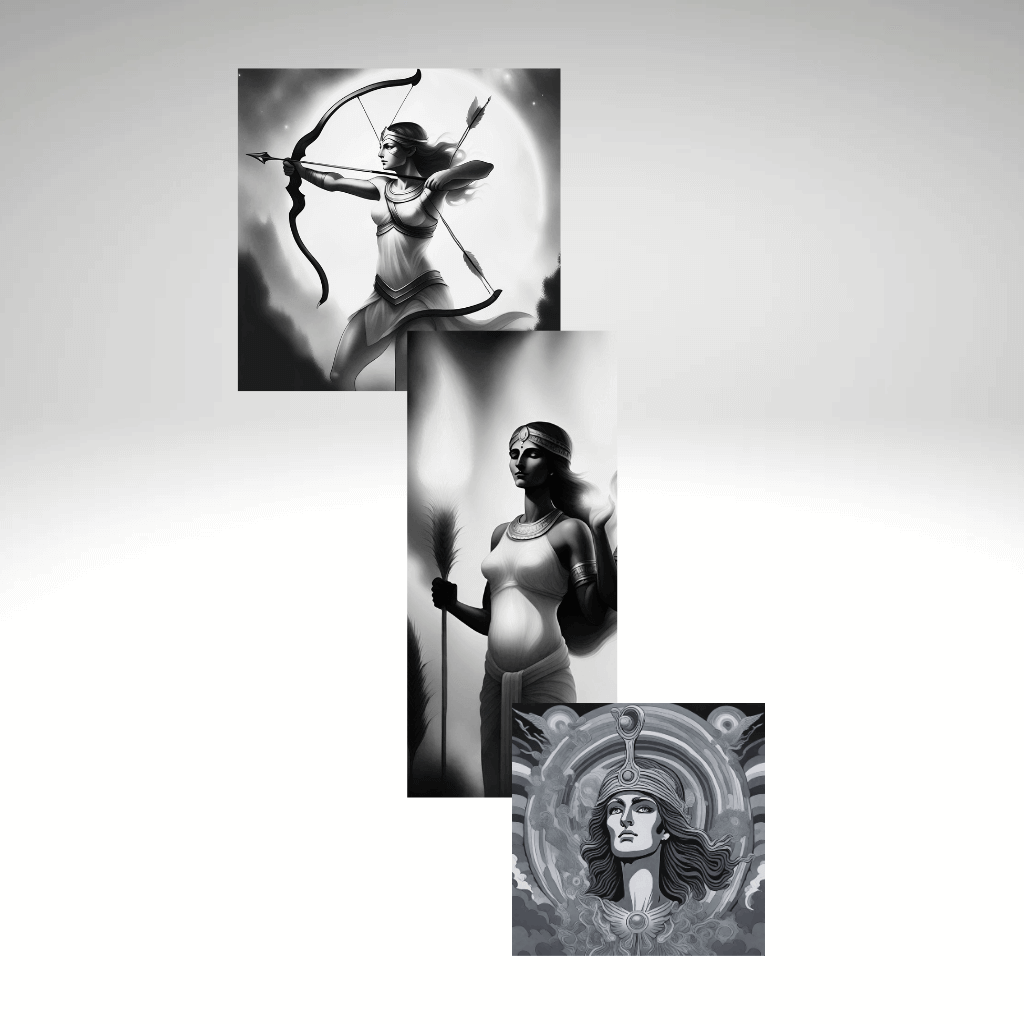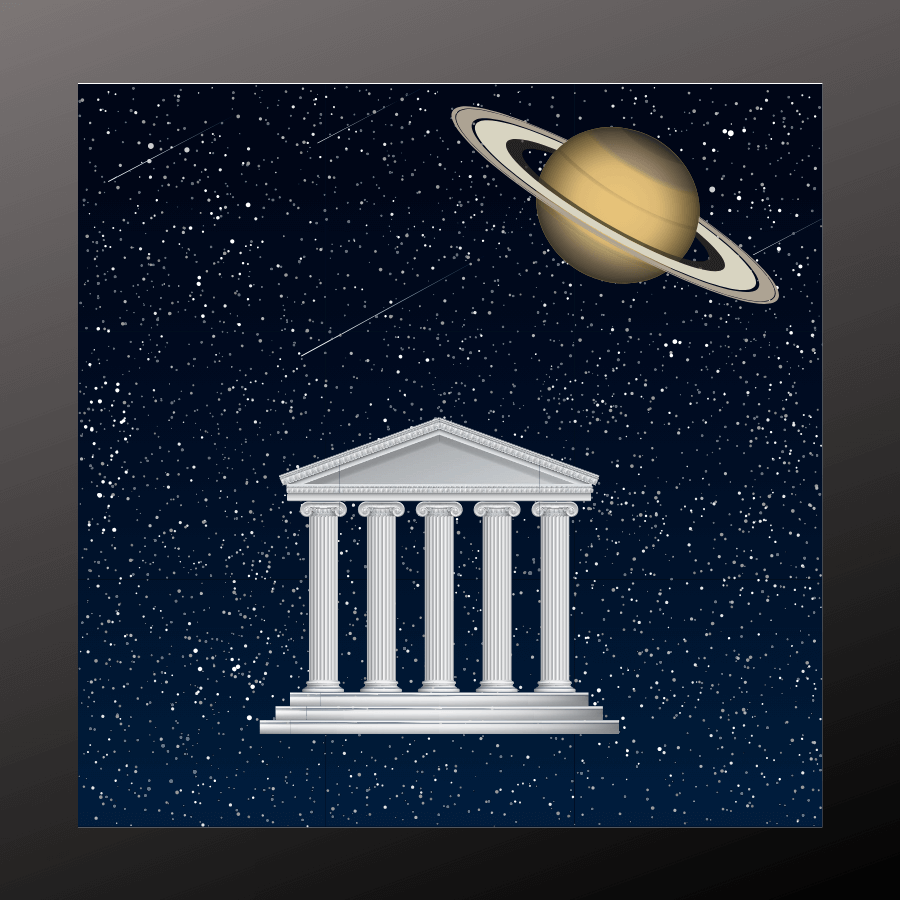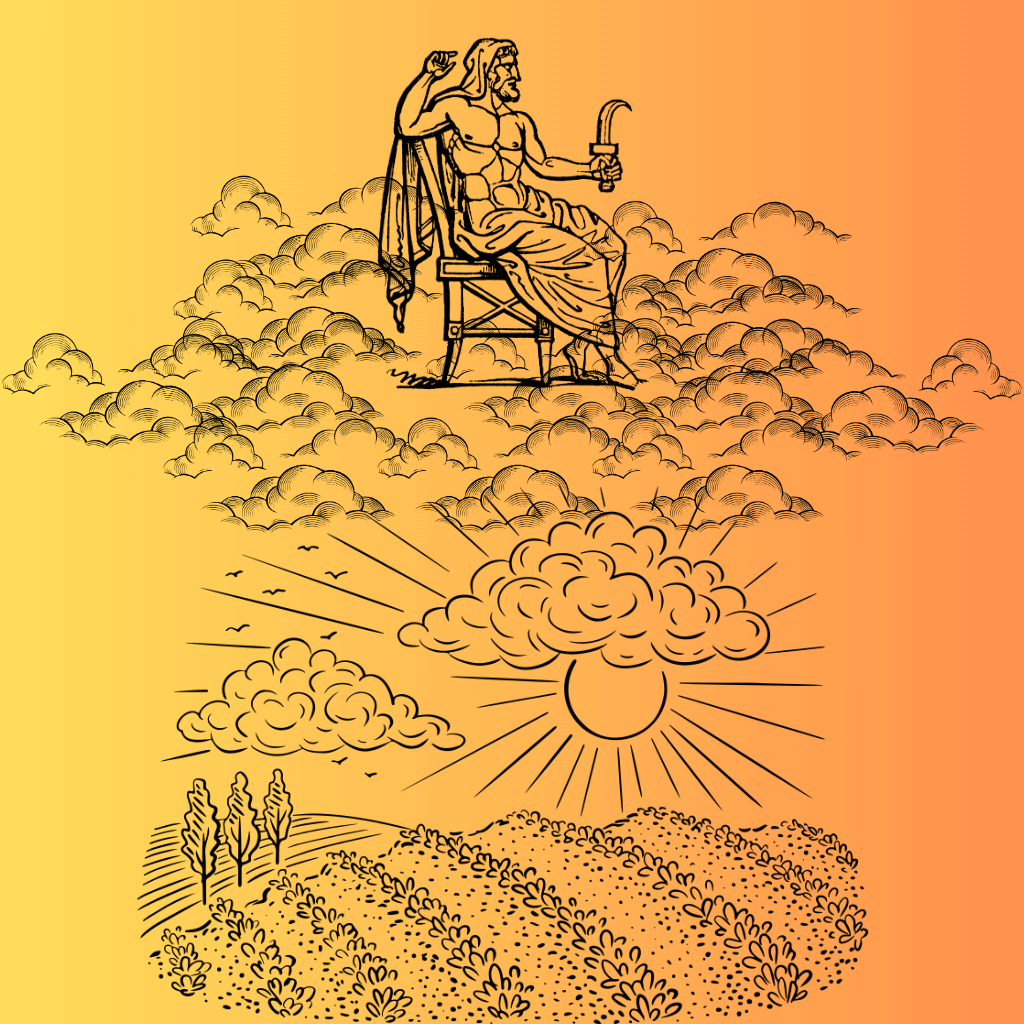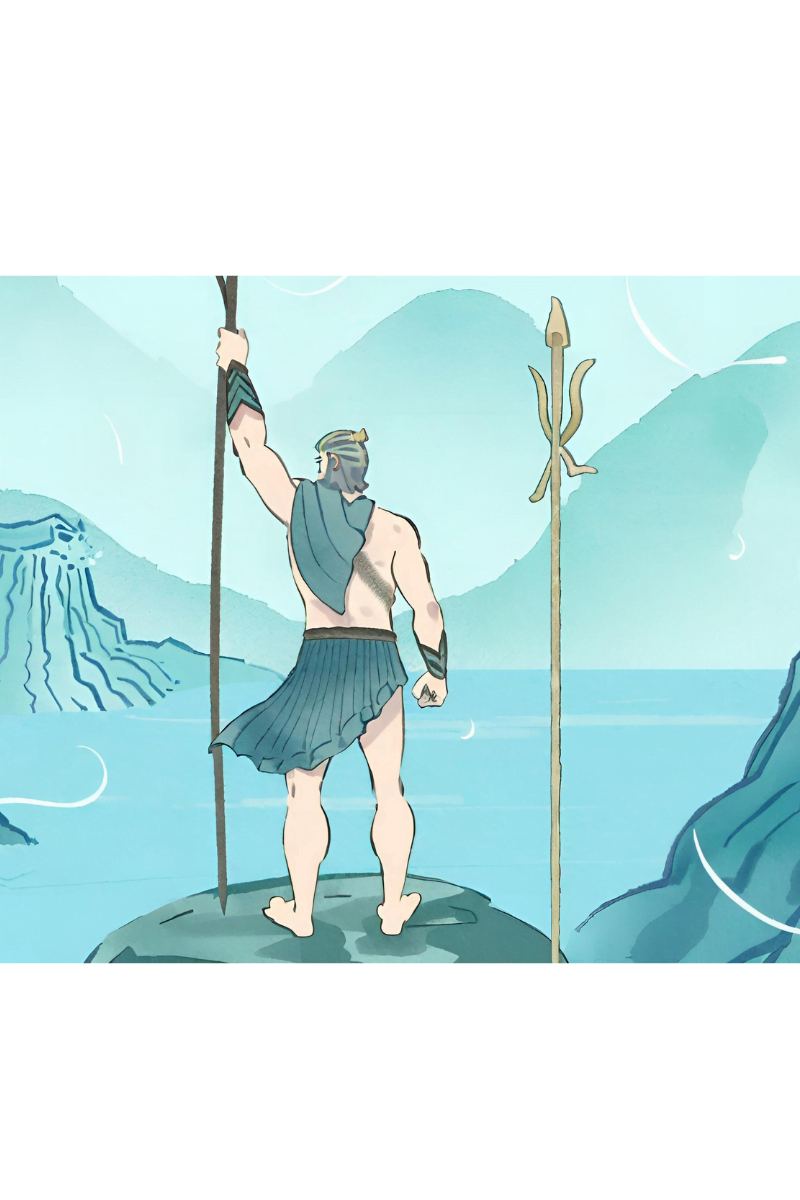
Poseidon: The God of the Sea
The son of Cronus and Rhea, Poseidon is the brother of Zeus, Hades, Demeter, Hera, and Hestia. In Greek Mythology, Poseidon is the ruler and god of the seas.
Poseidon, with his wrath, can unleash fierce winds and create destructive storms. Unfortunate sailors often fell victim to his fury. Simultaneously, the god of sea could calm the waves and pacify turbulent seas, creating safe routes for sailors. Thus, he became a crucial deity for maritime activities. Sailors would always invoke him with sacrificial offerings and gratitude before their journeys, thanking him with offerings after a successful and safe voyage. The God of the Sea was also significant for fishermen.
His power and dominion extend beyond the seas. In Greek Mythology, apart from creating waves and storms, he can create water sources and springs on land, open water channels, and cause earthquakes by striking the earth with his trident, a three-pronged spear. Hence, he was also known as the “earth-shaker.”

In a general and physical sense, he resembles his brother Zeus. However, in terms of character, the god of sea is not as gentle and good-natured as Zeus. He is more temperamental and wild, not hesitating to challenge Zeus. At one point, he even joined forces with Hera and Athena in an attempt to chain Zeus, although, aside from this story, he always went to Zeus’s aid whenever called and in times of need.
Marriages and Relationships of the Sea God
He is married to Amphitrite. Amphitrite was a sea nymph and one of the Nereids, daughters of Nereus and Doris. These nymphs were known for their association with the sea, embodying its beauty and mysteries. Amphitrite’s father is the son of Gaia and Pontos. He was a sea god long before Poseidon, and he is known as the old man of the sea.
The fateful meeting between Poseidon and Amphitrite occurred in the azure depths of the Aegean Sea. Amphitrite, initially uninterested in the advances of the sea god, sought refuge in the Atlas Mountains to escape his persistent pursuit, according to one story. In her absence, the oceans were in disarray, storms brewing and sea creatures agitated.
To mend the divine discord, the god of the sea sought the help of Delphinus, a messenger of the sea. Delphinus, empathizing with his plight, convinced Amphitrite to reconsider. Using his charm and eloquence, Delphinus successfully mediated between the estranged lovers, and Amphitrite, moved by his words, agreed to become his queen.
Poseidon and Amphitrite’s union was celebrated in a grandiose underwater wedding. The gods and goddesses of the sea attended, bestowing blessings and gifts upon the divine couple. The Cyclops crafted an exquisite crown for Amphitrite, symbolizing her newfound status as the queen of the sea.
From this marriage, Triton was born.
Triton: Poseidon’s only immortal son, Triton, is half-human and half-fish.
Some sources claim no children were born from this marriage, while others state that three children were born: Benthesicyme, Rhode, and Triton.
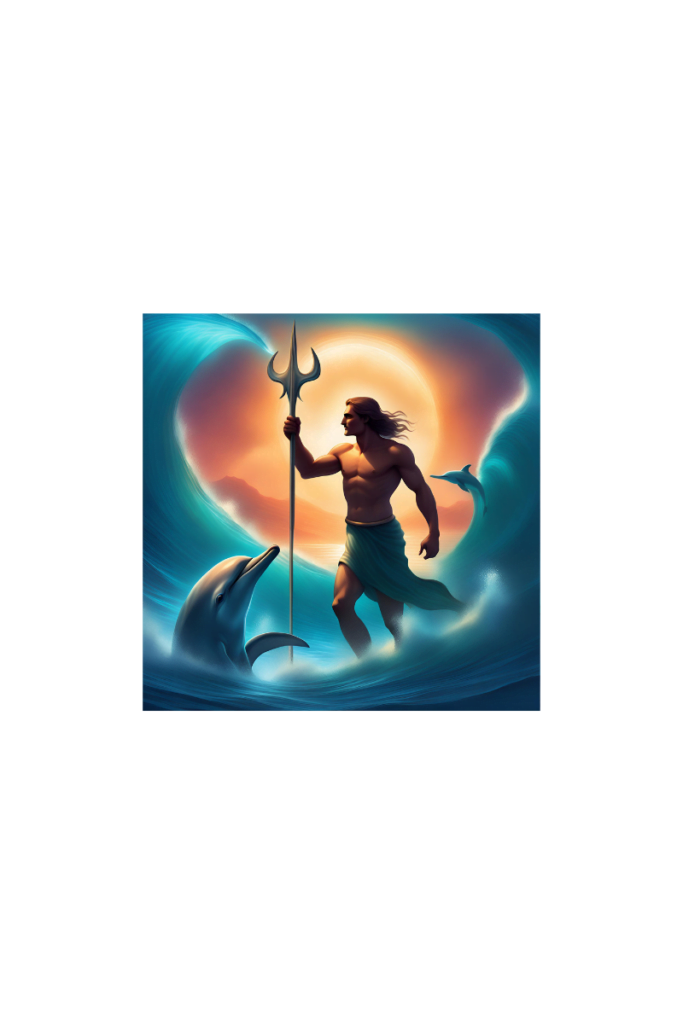
Other Relationships of the Sea God:
Halia:
Seven children were born from this union, with one being a girl named Rhodos (Rhodes). She later gave her name to the island.
Gaia:
- Antaeus
Poseidon and Thoosa:
- Polyphemus
Demeter:
- Areion
Other Aspects of the Sea God
He resides with his wife in an underwater palace. Although he is one of the 12 Olympians, he doesn’t often stay on Mount Olympus. He usually comes to Olympus for meetings and when summoned.
He often expressed his displeasure by creating devastating floods that would destroy entire cities. These floods were typically accompanied by terrifying sea monsters that swallowed survivors.
However, Poseidon is also a deity who bestows horses as gifts to humans.
Symbols: Trident, Horse, Dolphin
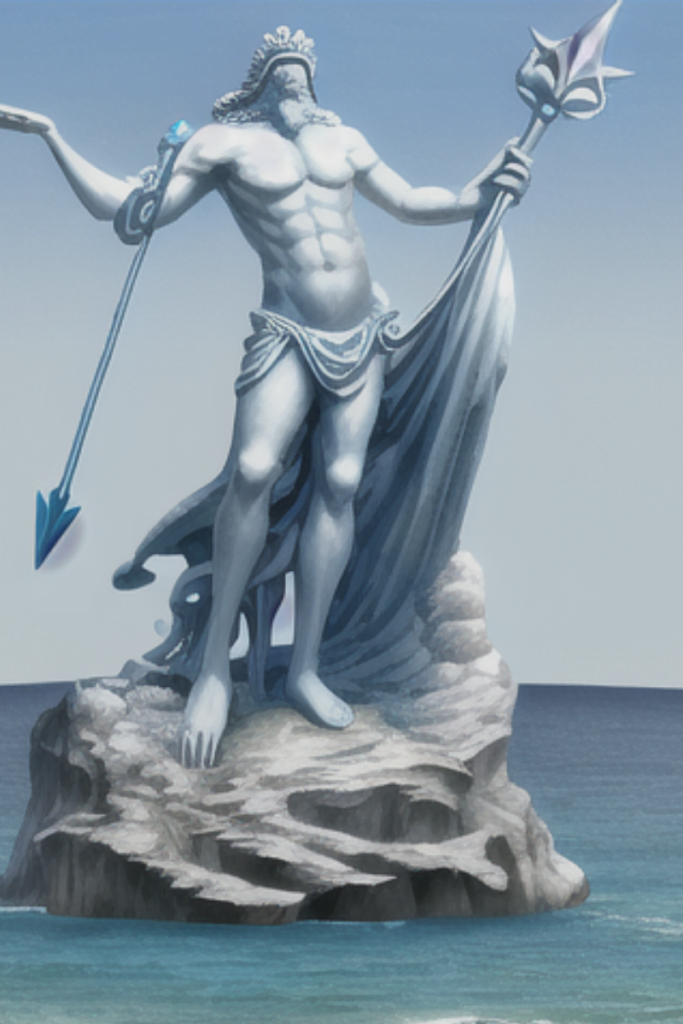
- Sources;
- Classical mythology – Mark P.O Marford/ Robert J. Lenardon
- Mitoloji Sözlüğü – Azra Erhat
- The Mythts& Legends of Ancient Greece and Rome – E.M Berens
- Greek and Roman mythology – Luke Roman / Monica Roman
- Mitoloji 101 /Kathleen Sears
